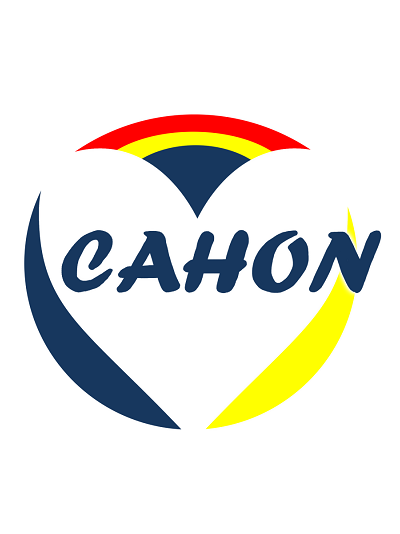新抗原和肿瘤突变负担在癌症免疫治疗中的作用:进展、机制和观点
IF 40.4
1区 医学
Q1 HEMATOLOGY
引用次数: 0
摘要
癌症免疫疗法通过利用免疫系统对抗肿瘤,彻底改变了肿瘤学。在各种生物标志物中,新抗原和肿瘤突变负担(TMB)已成为定制个性化治疗的关键因素。新抗原是肿瘤特异性肽显示在癌细胞表面,源自体细胞突变。它们被免疫系统识别为“非自我”,引发t细胞反应,并使个性化疫苗和过继t细胞转移等治疗成为可能。关键的是,新抗原潜能与TMB相关,TMB量化了肿瘤基因组内的总体细胞突变。较高的TMB通常与产生免疫原性新抗原的可能性较大相关,使其成为免疫检查点抑制剂(ICI)疗效的预测性生物标志物。高通量测序、生物信息学和免疫肽组学的进展显著提高了新抗原预测的准确性,包括评估主要组织相容性复合体(MHC)结合亲和力和t细胞受体识别。在临床上,基于新抗原的疗法在早期试验中显示出疗效,mRNA疫苗等策略通过增强t细胞激活和克服免疫抑制,显示出与ICI的协同作用。基于新抗原的治疗方法与化疗和放疗相结合,利用协同机制来提高疗效,克服耐药性,并成为关键的肿瘤学研究热点。将TMB整合到临床实践中已获得监管部门批准,可作为ICI治疗患者分层的生物标志物。此外,液体活检和单细胞技术等先进方法简化了TMB测量,提高了其对个性化免疫治疗的预测价值。总的来说,新抗原和TMB通过提供最大化治疗效果、克服耐药机制和促进持久癌症缓解的框架,优化了精确免疫肿瘤学的发展。本文章由计算机程序翻译,如有差异,请以英文原文为准。
The role of neoantigens and tumor mutational burden in cancer immunotherapy: advances, mechanisms, and perspectives
Cancer immunotherapy has revolutionized oncology by leveraging the immune system to combat tumors. Among various biomarkers, neoantigens and tumor mutational burden (TMB) have emerged as critical factors in tailoring personalized treatments. Neoantigens are tumor-specific peptides displayed on cancer cell surfaces, derived from somatic mutations. Recognized as "non-self" by the immune system, they trigger T-cell responses and enable therapies like personalized vaccines and adoptive T-cell transfer. Critically, neoantigen potential correlates with TMB, which quantifies the total somatic mutations within a tumor genome. A higher TMB generally correlates with a greater likelihood of generating immunogenic neoantigens, making it a predictive biomarker for the efficacy of immune checkpoint inhibitors (ICI). Progress in high-throughput sequencing, bioinformatics, and immuno-peptidomics has significantly enhanced the accuracy of neoantigen prediction, including assessments of major histocompatibility complex (MHC) binding affinity and T-cell receptor recognition. Clinically, neoantigen-based therapies have shown efficacy in early trials, with strategies such as mRNA vaccines demonstrating synergy with ICI by boosting T-cell activation and overcoming immune suppression. Combining neoantigen-based therapies with chemotherapy and radiotherapy harnesses synergistic mechanisms to enhance efficacy, overcome resistance, and emerge as a pivotal oncology research focus. The integration of TMB into clinical practice has received regulatory approval as a biomarker for stratifying patients for ICI therapies. Furthermore, advanced methodologies like liquid biopsy and single-cell technologies have streamlined TMB measurement, improving its predictive value for personalized immunotherapy. Collectively, neoantigens and TMB have optimized the evolution of precision immuno-oncology by providing frameworks that maximize therapeutic efficacy, overcome resistance mechanisms, and advance durable cancer remission.
求助全文
通过发布文献求助,成功后即可免费获取论文全文。
去求助
来源期刊
CiteScore
48.10
自引率
2.10%
发文量
169
审稿时长
6-12 weeks
期刊介绍:
The Journal of Hematology & Oncology, an open-access journal, publishes high-quality research covering all aspects of hematology and oncology, including reviews and research highlights on "hot topics" by leading experts.
Given the close relationship and rapid evolution of hematology and oncology, the journal aims to meet the demand for a dedicated platform for publishing discoveries from both fields. It serves as an international platform for sharing laboratory and clinical findings among laboratory scientists, physician scientists, hematologists, and oncologists in an open-access format. With a rapid turnaround time from submission to publication, the journal facilitates real-time sharing of knowledge and new successes.

 求助内容:
求助内容: 应助结果提醒方式:
应助结果提醒方式:


